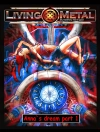Jack London was one of the first writers to earn a living in part from his writings in commercial fiction magazines. London became a socialist and his writings reflect this change in his political views. He is best known for his novels The Call of the Wild and White Fang. Stories in this collection include LOVE OF LIFE, A DAY’S LODGING, THE WHITE MAN’S WAY, THE STORY OF KEESH, THE UNEXPECTED, BROWN WOLF, THE SUN-DOG TRAIL, NEGORE, and THE COWARD,
LOVE OFLIFE (excerpt)
‘This out of all will remain – They have
lived and have tossed: So much of the game will be gain, Though the
gold of the dice has been lost.’
THEY limped painfully down the bank, and once the
foremost of the two men staggered among the rough-strewn rocks. They
were tired and weak, and their faces had the drawn expression of
patience which comes of hardship long endured. They were heavily
burdened with blanket packs which were strapped to their shoulders.
Head- straps, passing across the forehead, helped support these
packs. Each man carried a rifle. They walked in a stooped posture,
the shoulders well forward, the head still farther forward, the eyes
bent upon the ground.
‘I wish we had just about two of them
cartridges that’s layin’ in that cache of ourn, ‘ said the second
man.
His voice was utterly and drearily expressionless.
He spoke without enthusiasm; and the first man, limping into the
milky stream that foamed over the rocks, vouchsafed no reply.
The other man followed at his heels. They did not
remove their foot-gear, though the water was icy cold – so cold that
their ankles ached and their feet went numb. In places the water
dashed against their knees, and both men staggered for footing.
The man who followed slipped on a smooth boulder,
nearly fell, but recovered himself with a violent effort, at the same
time uttering a sharp exclamation of pain. He seemed faint and dizzy
and put out his free hand while he reeled, as though seeking support
against the air. When he had steadied himself he stepped forward, but
reeled again and nearly fell. Then he stood still and looked at the
other man, who had never turned his head.
The man stood still for fully a minute, as though
debating with himself. Then he called out:
‘I say, Bill, I’ve sprained my ankle.’
Bill staggered on through the milky water. He did
not look around. The man watched him go, and though his face was
expressionless as ever, his eyes were like the eyes of a wounded
deer.
The other man limped up the farther bank and
continued straight on without looking back. The man in the stream
watched him. His lips trembled a little, so that the rough thatch of
brown hair which covered them was visibly agitated. His tongue even
strayed out to moisten them.
‘Bill!’ he cried out…
About Jack London:
Jack London (1876-1916), was an American author and a pioneer in the then-burgeoning world of commercial magazine fiction. He was one of the first Americans to make a lucrative career exclusively from writing. London was self-educated. He taught himself in the public library, mainly just by reading books. In 1898, he began struggling seriously to break into print, a struggle memorably described in his novel, Martin Eden (1909). Jack London was fortunate in the timing of his writing career. He started just as new printing technologies enabled lower-cost production of magazines. This resulted in a boom in popular magazines aimed at a wide public, and a strong market for short fiction. In 1900, he made $2, 500 in writing, the equivalent of about $75, 000 today. His career was well under way. Among his famous works are: Children of the Frost (1902), The Call of the Wild (1903), The Sea Wolf (1904), The Game (1905), White Fang (1906), The Road (1907), Before Adam (1907), Adventure (1911), and The Scarlet Plague (1912).












